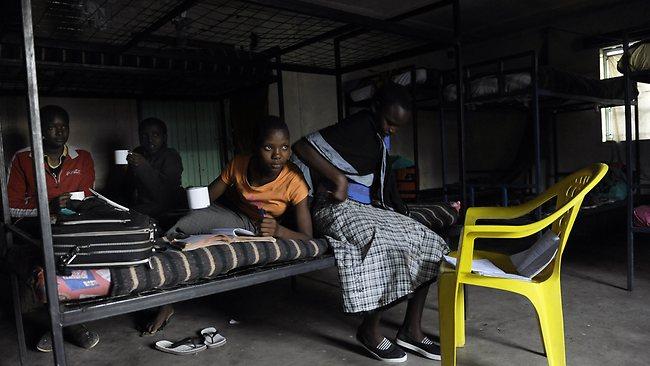If a 5-year-old girl growing up in a developing country could speak to global leaders, what would she say?
Change is possible if global leaders meeting at the G7 Summit this week listen to the young girls whose voices, too often, go unheard.
If a 5-year-old girl growing up in a developing country could speak to global leaders, what would she say?
Would she be listened to if she spoke about something that happens in at least 45 countries around the world and impacts over 200 million girls and women?

Female genital cutting (FGC) is an issue which must be listened to. It is the removal of a girl’s external genitals; a social norm and harmful practice which occurs all over the world. In the next 12 months alone, UNICEF and UNFPA estimate that a further 3.9 million girls will be cut.
FGC is not an issue that stands on its own. Very often the girl who is cut at 5 years old (the average age at which the practice occurs worldwide) is also the girl who is married at 14, doesn’t have the choice to continue her education and doesn’t have access to the healthcare she needs.
She may also go on to live with the lifelong physical and psychological impacts of FGC, in a context where poverty and malnourishment may be prevalent, and go on to deal with sometimes devastating complications around pregnancy and birth.
Megdes and Tinebab, two young girls I met in Lalibela, Ethiopia in 2009, were playing and talking with me when I realised that, with a 74% prevalence rate in their country, it was more than likely that they would be cut. Their entire lives could be irrevocably altered by the numerous harmful consequences of this practice. Not only would it affect Megdes and Tinebab, but it would also impact their community and wider society, since the health implications of FGC can prevent a girl from completing her education and gaining economic autonomy.
This week, leaders from the world’s 7 largest economies, plus the EU, are meeting for the G7 Summit in Charlevoix, Canada, to discuss some of our most pressing global issues.
Gender equality is front and centre on the agenda, and G7 development and finance ministers have welcomed 6 adolescent girl advocates from around the world, including countries where FGC occurs, to their meeting in Whistler ahead of the big event in Charlevoix.
This is one step in the right direction in giving voice to a severely under-represented and under resourced group: girls in developing countries.
FGC is one of the key barriers that is hindering the advancement and inclusion of millions of girls around the world. It is an urgent human rights issue that the G7 powers cannot afford to overlook.
Almost every country in which FGC occurs is in the bottom quintile of the Human Development Index; in most cases, they are also countries with the highest projected birth rate over the next decade. UNICEF predicts that, despite falling rates of FGC in many countries, population growth means that up to 63 million more girls could be cut by 2050 if efforts are not accelerated.
The good news is that positive change is happening. With concerted efforts by ambitious communities and the work and support of NGOs, governments and donors who are willing to listen to those communities, progress is being made. FGC is ending.
Bilo, a 5-year-old girl I met in southern Senegal in 2015, is part of a generation who will not know the impacts of FGC, because her community has chosen to abandon the practice, along with child marriage, through community-driven, holistic action, supported by West African NGO, Tostan.
When they meet this week, the G7 powers must keep girls like Megdes and Tinebab from Ethiopia in mind, and look to the hope brought by girls like Bilo and her community in Senegal, who are living examples of what can be achieved with concerted, community-led efforts.
One of the most important lessons I’ve learnt from communities driving change is that you don’t shift a taboo by staying silent. What we need from the G7 leaders is commitment, leadership, resource and policy. It’s time for world leaders to break the silence, and act now to end FGC.

